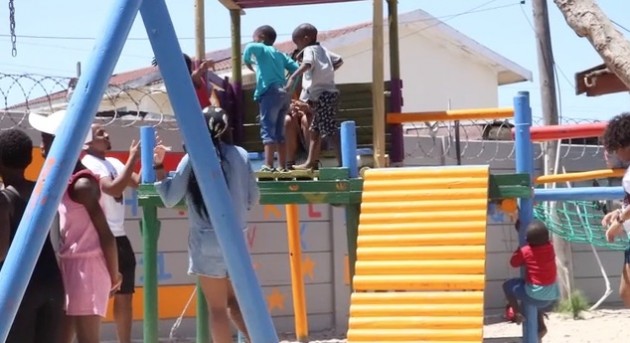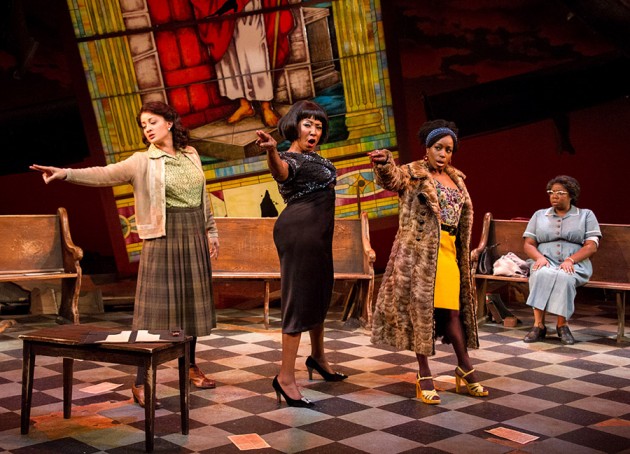Ongoing Battle Between Same-Sex Advocates and Conservatives Continues
The U.S. Supreme Court reached a decision declining to hear a challenge to a Massachusetts law legalizing same-sex marriages, thus maintaining the ongoing battle between conservative groups and same-sex marriage advocates.
Members of the Lesbian, Gay, Bisexual & Transgender Community Center, which is the largest LGBT community center on the East Coast, commended this decision and many hope this will be the first step in legalizing gay marriages throughout the nation.
“The Supreme Court’s decision declining to hear a challenge to the Massachusetts law means that same-sex couples in that state will continue to be treated with fairness,” says Miriam Yeung, the Center’s director of public policy & government relations. “Unfortunately, however, that basic civil right continues to be elusive for millions of other lesbian and gay citizens throughout our country.”
According to the Associated Press, in the past year, at least 3,000 gay marriages have taken place. Conservative groups had requested the nation’s high court to overturn a decision by the Massachusetts Supreme Court that permits same-sex marriages. Voters may have the opportunity next year to reverse the state constitution to allow civil union benefits to couples of the same sex, but not the institution of marriage.
Critics argued that the November 2003 ruling by the highest court in Massachusetts violated the U.S. Constitution’s promise of a republican form of government in each state. They lost at the first U.S. Circuit Court of Appeals in Boston.
Mathew Staver, their attorney, said in a Supreme Court filing that the Constitution should “protect the citizens of Massachusetts from their own state supreme court’s usurpation of power.”
Massachusetts Attorney General Tom Reilly told justices that voters could overrule the Supreme Court by implementing a constitutional amendment.
Voters in 11 states approved constitutional amendments prohibiting gay marriages in November elections. President Bush has promised to make a federal anti-gay marriage amendment a main concern of his second term.
The Massachusetts Supreme Judicial Court closely ruled that gays and lesbians had a right under the state constitution to be joined in marriage. The nation’s high court had avoided involvement with the Massachusetts fight on a previous occasion. Last May, justices refused to get involved and blocked clerks from issuing the first marriage licenses.
Many black college students don’t feel that it is necessary to place laws banning same-sex marriages.
“I don’t have a problem with gay marriages,” said April Jackson, sophomore elementary education major from Adelphi University. “I think they should have the same rights as everyone else.”
Some feel that the powers of the law should not prevent two couples who are in love from getting married.
“I’m for same-sex marriages because I feel that if two people love each other then why not get married?” said Winter Drayton, junior psychology major from Hampton University. “They’re not hurting anyone, and it’s something positive, not negative.”
Both Jackson and Drayton also feel that states should decide for themselves if they want to legalize gay marriages.
John W. Davis, a Communications Law professor at Howard University, has a more complex view of the argument of the legalization of gay marriages.
“There are two views that I must consider,” Davis stated, “My personal view is that I don’t think it should be legalized. My political view, from a philosophical perspective, is as long as an individual conducts himself or herself in a way that does not touch another person’s nose, they should be able to do what they want to do. Their actions are not hurting anyone.”
Davis also discussed his opinions on whether laws banning gay marriages should be decided by the states or if it should be a national law.
“Currently, you have a situation where one state permits it and the other states do not have to recognize it as they would normally have to under the U.S. Constitution. It’s similar to the ‘don’t ask, don’t tell’ military draft; as long as it’s not hurting anyone people will ignore it. Nowadays a couple can do anything they want to, for example, they can clone each other. Traditional methods of marriage might be a thing in the past whether we like it or not.”



